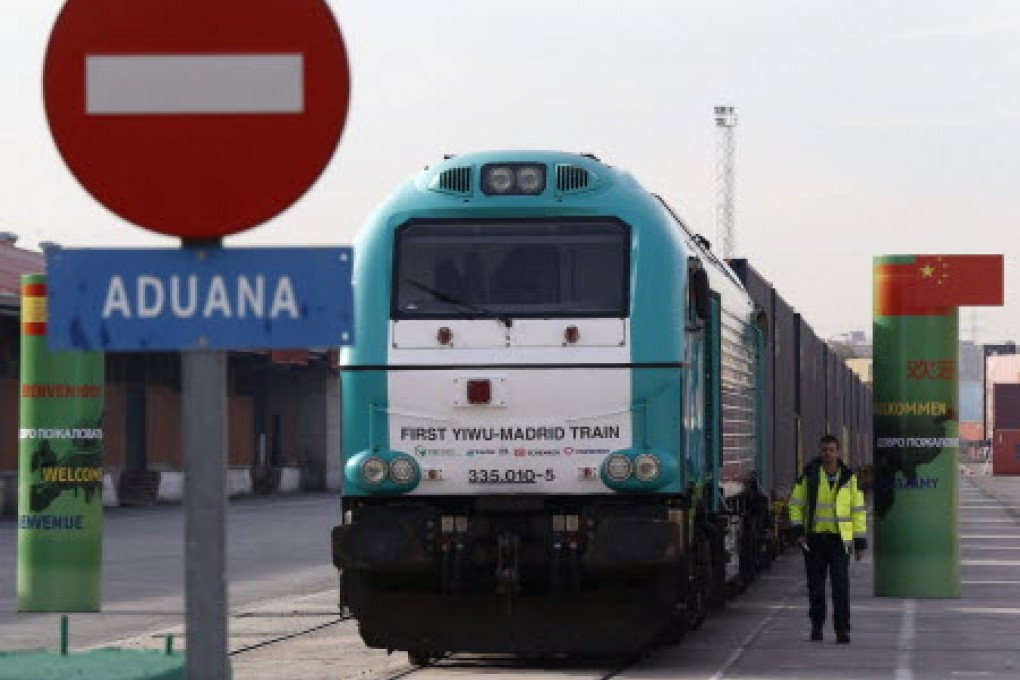First freight train from China arrives in Spain after 13,000km test run

The first freight train to link China directly to Spain arrived in Madrid on Tuesday after covering more than 13,000km in a test run of a planned regular service.
The train left Yiwu, a major wholesale centre for small consumer goods, in eastern China on November 18 and passed through Kazakhstan, Russia, Belarus, Poland, Germany, and France during its 21-day trip.
It is the longest railway route in the world, longer still than Russia’s famous Trans-Siberian railway linking Moscow to Vladivostok.
The journey time was more than 10 days shorter than if the goods transported by the train had been shipped by sea, Spain’s public works ministry said.
The train’s 40 shipping containers transported goods made in Zhejiang province, including spinning tops for children and cutting tools. The train will return to China with wine, olive oil and cured ham.
Speaking a ceremony in Madrid, Zhejiang governor Li Qiang said the route was important to “implement the strategy of developing a new silk road”.
China has a regular direct freight train service to Germany, Europe’s largest economy.